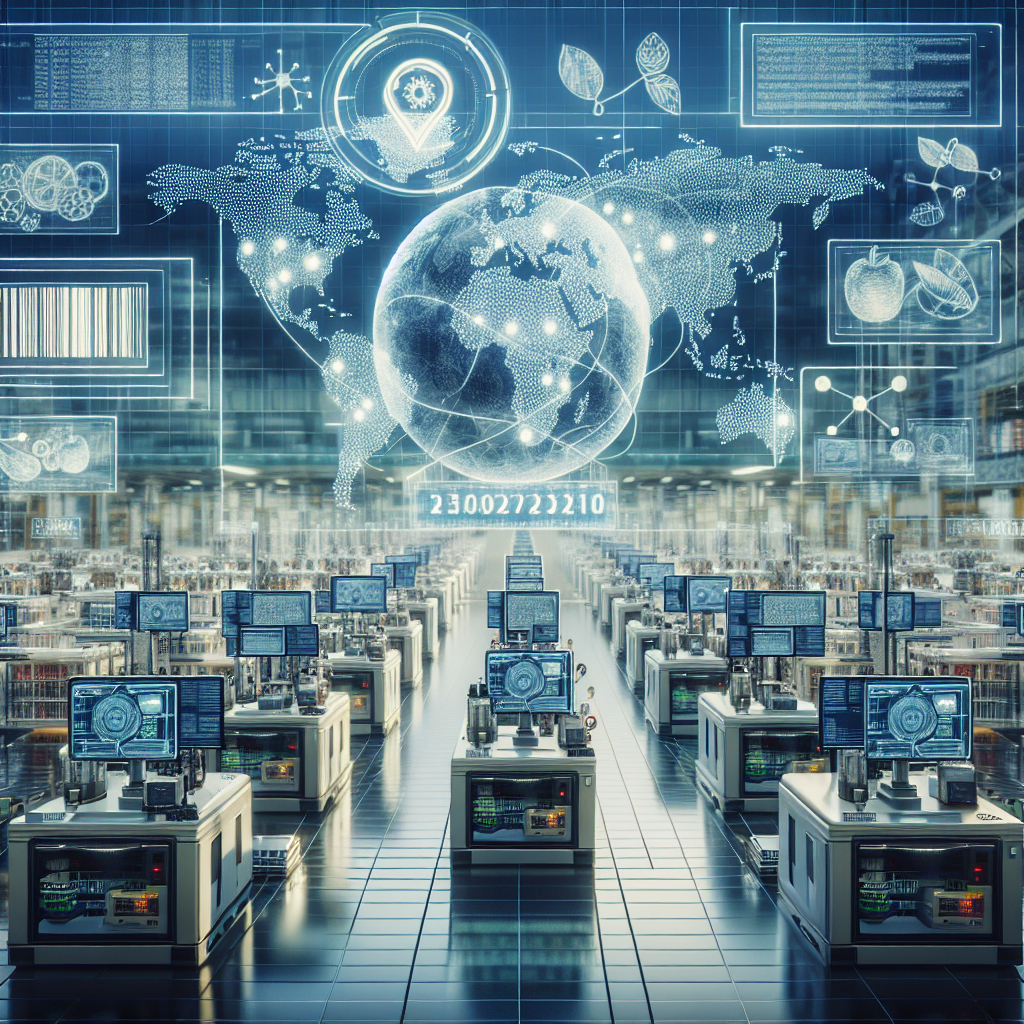In recent years, the food industry has seen a rapid increase in the use of artificial intelligence (AI) to improve food safety and traceability. AI has the potential to revolutionize the way food is monitored, traced, and managed throughout the supply chain, from farm to table. This technology is helping to reduce the risk of foodborne illnesses, ensure the quality of products, and provide consumers with greater transparency and trust in the food they consume.
One of the key roles of AI in food safety is its ability to detect and prevent contamination in food products. By analyzing data from various sources, such as sensors, cameras, and even social media, AI can identify potential risks in the supply chain and take action to prevent outbreaks of foodborne illnesses. For example, AI can analyze data on temperature, humidity, and other environmental factors to detect any deviations that could indicate spoilage or contamination of food products. This early detection can help to prevent the spread of harmful pathogens and ensure the safety of consumers.
AI is also being used to enhance traceability in the food supply chain. By using blockchain technology, AI can track the movement of food products from the farm to the store, providing a transparent and immutable record of each step in the process. This can help to prevent fraud and counterfeit products, as well as provide consumers with information about the origin of their food and how it was produced. In the event of a food recall, AI can also help to quickly identify and remove affected products from the market, reducing the risk to consumers and protecting the reputation of food companies.
Overall, the role of AI in food safety and traceability is to improve the quality and safety of food products, enhance transparency and trust in the food supply chain, and reduce the risk of foodborne illnesses. By leveraging the power of AI, food companies can better monitor and manage their products, ensure compliance with regulations, and provide consumers with greater confidence in the food they consume.
FAQs:
Q: How does AI improve food safety?
A: AI can improve food safety by analyzing data from various sources to detect potential risks in the supply chain, such as contamination or spoilage of food products. By identifying these risks early, AI can help to prevent outbreaks of foodborne illnesses and ensure the safety of consumers.
Q: How does AI enhance traceability in the food supply chain?
A: AI enhances traceability in the food supply chain by using blockchain technology to track the movement of food products from the farm to the store. This provides a transparent and immutable record of each step in the process, helping to prevent fraud, counterfeit products, and providing consumers with information about the origin of their food.
Q: What are the benefits of using AI in food safety and traceability?
A: The benefits of using AI in food safety and traceability include improved quality and safety of food products, enhanced transparency and trust in the food supply chain, and reduced risk of foodborne illnesses. AI can also help food companies to comply with regulations, quickly identify and remove affected products in the event of a recall, and provide consumers with greater confidence in the food they consume.
Q: Are there any challenges to implementing AI in food safety and traceability?
A: Some of the challenges to implementing AI in food safety and traceability include the cost of implementing and maintaining AI systems, the need for skilled personnel to operate and interpret the data from these systems, and concerns about data privacy and security. However, as the technology continues to advance, these challenges are being addressed, and more food companies are adopting AI to improve food safety and traceability.

